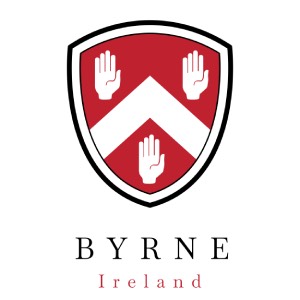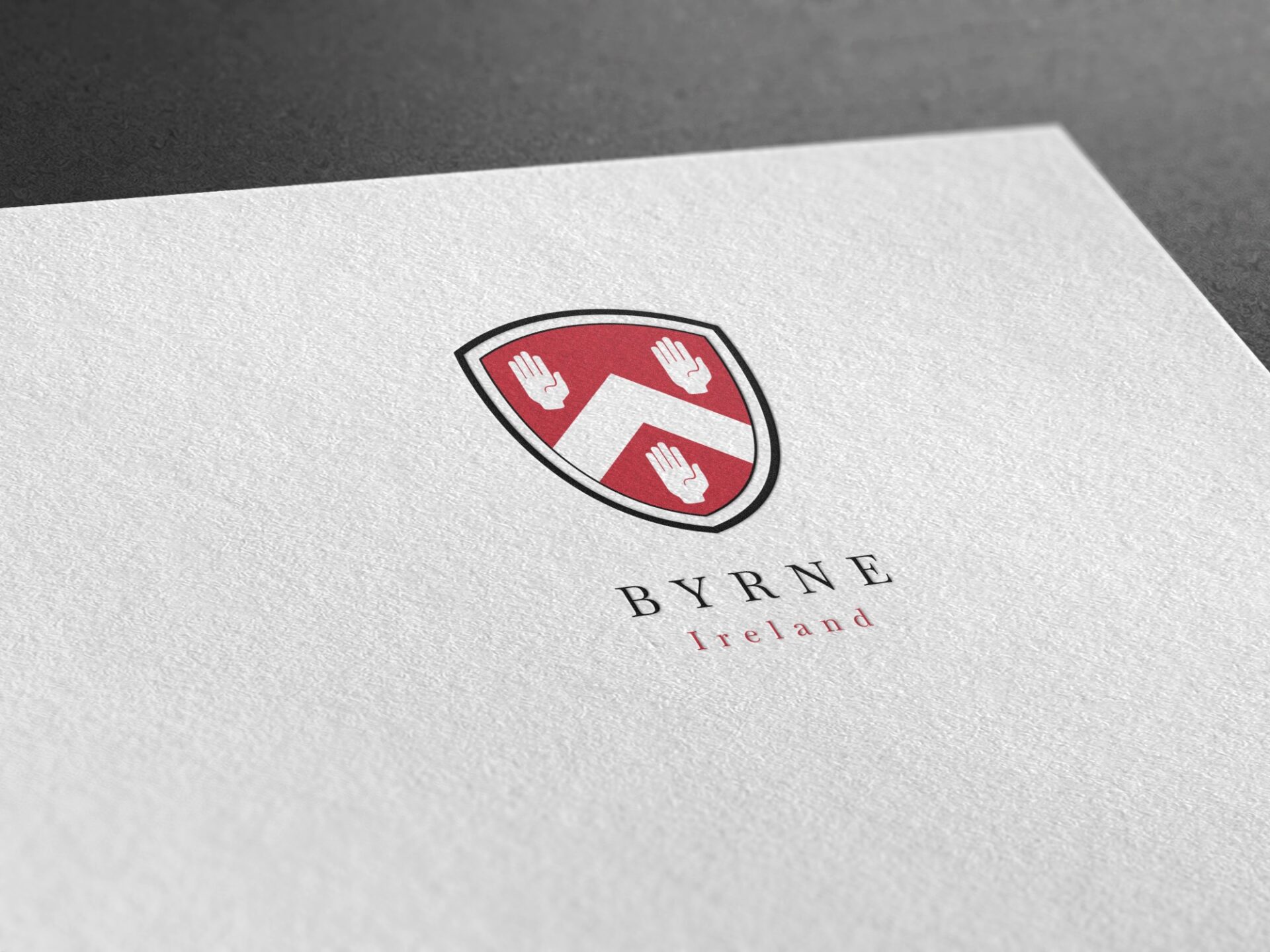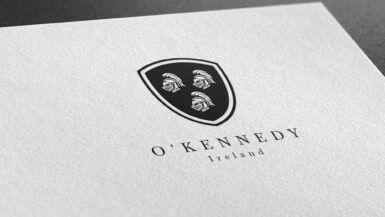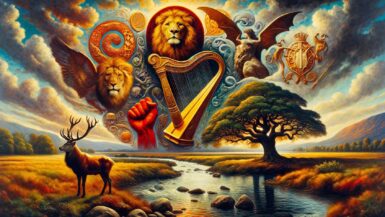Origin of the Surname
The Byrne surname is of Irish origin. It is an anglicized form of the Gaelic “Ó Broin,” which belongs to a prominent clan that traces its lineage back to ancient Irish royalty.
Etymology and Meaning
The surname Byrne is derived from the Gaelic “Ó Broin,” which means “descendant of Bran.” The name Bran, in the Irish language, translates to “raven.” Ravens were revered in ancient Irish culture for their perceived wisdom and association with the otherworld, thus lending a mystical quality to the surname.
Earliest Known Usage
The earliest known usage of the Byrne surname dates back to the 11th century in Leinster, one of the provinces of Ireland. The clan claims descent from Bran Ardchenn, a king of Leinster who died in 1052.
Geographic Distribution
Today, the Byrne surname is one of the most common in Ireland, particularly in and around the province of Leinster. Due to historical emigration, bearers of the Byrne name can also be found in significant numbers in England, the United States, Australia, Canada, and New Zealand.
Original Geographic Location
The Byrne family originally held territories in the province of Leinster, particularly in what is now County Kildare and County Wicklow. The principal sept of the O’Byrnes was based in the latter, where their chief was known as the Gabhail Raghnal (the rents of Ranelagh), a title indicating considerable property and influence.
Migration Patterns
Like many Irish families, the Byrnes experienced significant displacement during the 19th century, particularly during the Great Famine of 1845-1852. Many emigrated to the United States, Canada, Australia, and Britain during this period, leading to a global dispersion of the surname.
Historical Context
Notable Historical Events
The Byrnes were notable for their resistance against Anglo-Norman and later English attempts to control Ireland. Fiach McHugh O’Byrne, a chieftain in the 16th century, famously resisted the Tudor conquest of Ireland.
Involvement in Key Moments in History
In modern times, bearers of the Byrne surname have been involved in significant events, particularly in the arts and politics. For example, Gabriel Byrne, an internationally renowned actor, has contributed significantly to global appreciation of Irish culture.
Notable Bearers of the Surname
Famous Individuals
Famous individuals with the Byrne surname include Gabriel Byrne, a celebrated Irish actor; David Byrne, a Scottish-American musician and former member of the band Talking Heads; and Rose Byrne, an Australian actress.
Influential Figures
Notable historical figures include Sir Hugh Byrne, a member of the Irish parliament in the 17th century, and Fiach McHugh O’Byrne, a 16th-century chieftain who resisted English rule.
Variations of the Surname
Spelling Variations
Spelling variations of the Byrne surname include Byrnes, O’Byrne, O’Byrnes, and Beirne. The prefix ‘O’, which signifies ‘descendant of,’ was often dropped under English influence but has been widely restored in the 20th century.
Regional Differences
The Byrne surname is most commonly found in Leinster, especially in Counties Kildare and Wicklow. In parts of western and northern Ireland, the form Beirne is more common.
Current Statistics and Distribution
Frequency and Global Distribution
The Byrne surname is the seventh most common surname in Ireland. There are over 30,000 people with the Byrne surname in Ireland today, and an estimated 90,000 worldwide. It is particularly common in the United States, United Kingdom, Australia, and Canada due to historical migration patterns.
Changes Over Time
Over time, the distribution of the Byrne surname has remained concentrated in the Leinster province of Ireland, especially in County Wicklow. However, the effects of emigration, particularly during the 19th-century Irish diaspora, have led to a global dispersion of the name.
Family Coat of Arms

The Byrne family crest is a visually striking heraldic symbol, rich in meaning and tradition. The crest features a bold red background, a color deeply associated with strength, valor, and warrior-like qualities in heraldry. This vibrant red sets a powerful backdrop that highlights the values and bravery historically attributed to the Byrne family.
Central to the design is a white or silver chevron, which cuts across the shield. The chevron is a common heraldic symbol denoting protection, and it is often considered a representation of the rooftops of houses, suggesting the importance of home and security. The color white or silver in heraldry is traditionally linked to peace and sincerity, adding a layer of nobility and purity to the family’s emblem.
Prominently displayed on the crest are three hands, which are particularly significant symbols in heraldry. Hands are often interpreted as pledges of faith, sincerity, and justice. They may also represent the concept of unity and the strength found in loyalty and support among family members. The inclusion of three hands might signify the power of unity and the bonds that hold the family together through generations.






Leave a reply